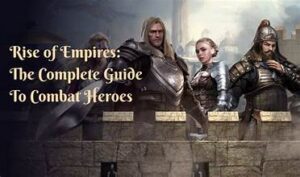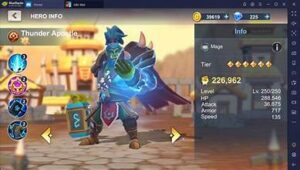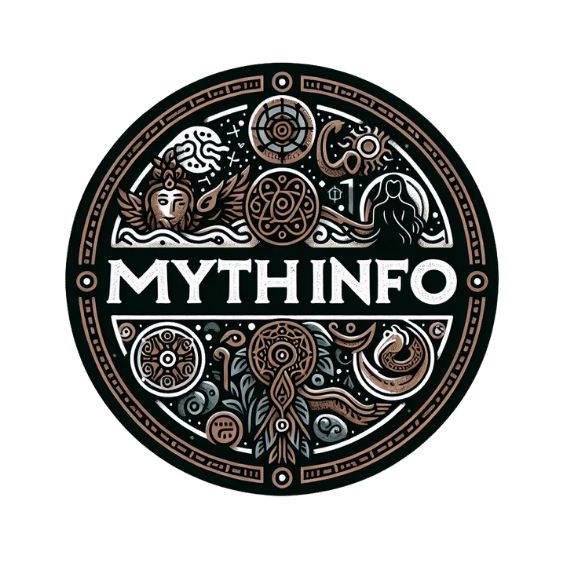
In an era where digital media dominates, the revival of ancient legends and heroes has become a fascinating trend. Modern media, through films, TV series, video games, and other platforms, is breathing new life into these timeless stories, reshaping them for contemporary audiences. This article explores how the resurgence of legendary heroes in 2024 highlights the interplay between ancient mythology and modern storytelling, and how this trend is capturing the imagination of audiences worldwide.
The Enduring Appeal of Ancient Legends
Ancient legends have always held a special place in human culture. From the epic tales of Greek mythology to the heroic sagas of Norse and Celtic traditions, these stories have shaped cultures and inspired countless generations. The allure of legendary heroes—whether it’s Hercules, King Arthur, or Sun Wukong—lies in their extraordinary feats, moral lessons, and their embodiment of universal human values such as bravery, wisdom, and justice.
Modern Media’s Role in Reviving Ancient Legends
In recent years, modern media has played a pivotal role in bringing these ancient stories back into the spotlight. This revival is not just a nostalgic nod to the past but a strategic move to engage new audiences. Here’s how different forms of media are contributing to this resurgence:
1. Film and Television
Film and television have been at the forefront of reimagining ancient legends. Productions like “The Witcher,” based on the works of Andrzej Sapkowski, draw heavily from Slavic folklore, while Marvel’s “Thor” series brings Norse mythology to the forefront of pop culture. These adaptations often take creative liberties, modernizing the stories while retaining their core essence.
In 2024, several high-profile projects are set to further this trend. For instance, “The Last Kingdom: Beyond the Wall” is a TV series that merges historical facts with mythological elements, drawing inspiration from the legends of King Arthur and Viking sagas. Such shows not only entertain but also educate viewers about ancient myths in an engaging format.
2. Video Games
Video games have also become a powerful medium for reviving ancient legends. Games like “God of War,” which draws from Greek and Norse mythologies, allow players to interact with these legendary figures in immersive ways. The upcoming release of “Mythos Legends,” an RPG set to launch in late 2024, promises to blend various mythological themes from around the world, offering players a chance to experience different cultures’ heroics firsthand.
Games offer a unique interactive element that traditional media cannot, allowing players to explore mythical worlds, make choices, and even alter the course of legendary stories. This level of engagement helps foster a deeper connection with the myths and heroes being portrayed.
3. Books and Graphic Novels
Books and graphic novels continue to be a significant force in the revival of ancient legends. Authors are reinterpreting classic myths for modern readers, often blending genres and adding contemporary themes. Neil Gaiman’s “Norse Mythology” and Rick Riordan’s “Trials of Apollo” series are prime examples of how ancient tales are being adapted for today’s audience.
In 2024, the release of “Echoes of Olympus” by bestselling author Emily Roberts promises to bring new life to Greek myths, blending them with modern narratives and themes. Graphic novels like “The Chronicles of Avalon” are also set to captivate readers with their visually stunning retellings of Arthurian legends.
4. Podcasts and Digital Media
Podcasts and digital media platforms offer another avenue for reviving ancient legends. Shows like “Mythology Unbound” and “Legendary Tales” delve into various mythological stories, providing listeners with both entertainment and education. These platforms often feature expert interviews, dramatizations, and discussions that make ancient legends accessible to a broad audience.
In 2024, the podcast “Ancient Echoes,” hosted by renowned mythologist Dr. Clara Martin, is expected to explore lesser-known legends from around the world, shedding light on forgotten heroes and their stories.
The Impact on Culture and Society
The revival of ancient legends through modern media has a profound impact on culture and society. It bridges the gap between past and present, allowing contemporary audiences to connect with their cultural heritage in new and meaningful ways. This resurgence fosters a greater appreciation for historical myths and can inspire individuals to explore their own cultural roots.
Moreover, by reinterpreting these legends through modern lenses, media creators address current societal issues and values. Themes of heroism, justice, and moral integrity are often revisited in ways that resonate with today’s audiences, making ancient stories relevant to contemporary life.
Challenges and Criticisms
While the revival of ancient legends is largely celebrated, it is not without challenges and criticisms. One major concern is the accuracy and authenticity of these portrayals. Creative liberties taken in adaptations can sometimes lead to the distortion of original myths, which may dilute their cultural significance.
Another challenge is ensuring that the representation of these legends is respectful and inclusive. Modern media must navigate cultural sensitivities and avoid perpetuating stereotypes or misrepresenting ancient traditions.
Conclusion
In 2024, the revival of legendary heroes through modern media is more dynamic and diverse than ever before. Films, TV series, video games, books, and digital media are all contributing to a renewed interest in ancient myths, bringing these timeless stories to new generations. As media continues to evolve, it will be fascinating to see how ancient legends are reinterpreted and how they continue to shape our understanding of heroism and culture.

